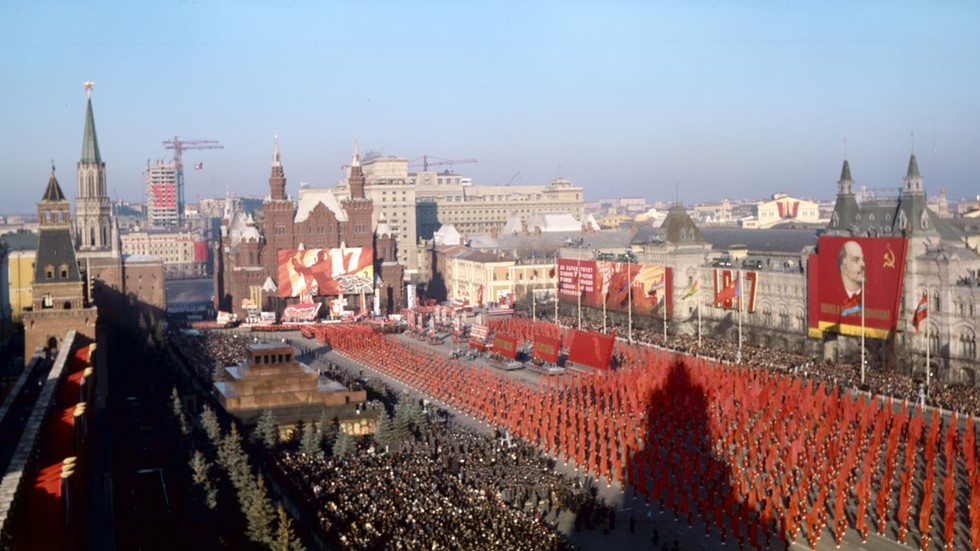
From banning sofas and soft carpets in offices to seizing property from political emigrants, old Soviet laws have been hampering Russia’s development for decades. But now 20,000 outdated acts will finally be made obsolete.
Prime Minister Dmitry Medvedev has ordered the so-called ‘regulatory guillotine’ as a measure against the excessive and ineffective regulation of business. It’ll see a massive raft of legislation, signed between 1917 and 1991 in the USSR and Soviet Russia, laid to rest in early 2020.
The ‘regulatory guillotine’ will finally legalize sofas and carpets in government offices across Russia. It turns out that, for the past 60 years, they’ve been put there in violation of the law. A 1958 resolution by the Council of Ministers of RSFSR (Russian Soviet Federative Socialist Republic) banned the use of soft furniture as well as woollen and silk fabrics in the decor of state offices and public facilities, as part of a drive against vanity.
Another piece of legislation to be axed is the 1927 law “On the requisition and confiscation of property,” which states that the belongings of those who fled the USSR due to “political reasons” should be seized in favor of the state. Immigrants were able to keep their property if they returned home before the confiscation took place but, considering the purge of dissidents under Joseph Stalin’s rule, not many were willing to use this loophole.
Scientists, writers, artists and high-ranking military officials shouldn’t be too happy that a special legal clause, that allowed them to seek an additional 20 square meters of housing space, will also be extinguished. In the USSR, the state provided accommodation for its citizens. The huge “Writers’ Apartments” in central Moscow have become a part of Soviet folklore. However, the law didn’t provide any benefits to these ‘special ones’ after the fall of the USSR in 1991.
A 1956 resolution on attracting members of the gypsy community as labourers will also become history. This legislation orders local authorities to provide permanent accommodation to vagabonds while also finding them a job at collective farms, plants or construction sites.
All products in the Soviet Union had to be made in accordance with the GOST (All-Union State Standard) and bread was no exception. The 1990 regulation from the Grain Products Ministry strictly regulated the number of cuts that should be made on specific types of bread loaves. However, from February of this year, Russian bakers are free to make as many cuts as they want without fear of committing a violation.
The decree of the Council of People’s Commissars of the RSFSR, which was signed shortly after the Bolshevik Revolution in 1917 and established an eight-hour working day and 48-hour working week will go under the knife, due to its contradiction of the existing Labor Code. It clearly states that the length of a normal working week shouldn’t exceed 40 hours.
The 1920 decree by the main Committee on Universal Labor Duty obliged the Unions to inform the special Deserter Commission about any employees who were skipping work. It’s been really problematic for them to abide by this legislation as the Deserter Commission has been non-existent for decades now.
Another outgoing law is also firmly grounded in Soviet realities. The 1926 resolution equated the children of civil servants to those of factory workers when they applied to join universities. But, almost 100 years later, it’s really hard to imagine why those categories of prospective students would ever have different rights.
The government has until the New Year to formalize the full list of Soviet acts to go under the ‘regulatory guillotine.’
RELATED ARTICLES
- After Fooling the People to Reelect Putin, Russia now announces More Cannon Fodder Mobilizations
- Russia Fires Barrage of North Korean Missiles at Kyiv After US Visit
- Ex-Wagner fighters Join Free Russia Army's Battle to Liberate Russia from Putin Occupation
- Hungary Becomes First EU Country to Congratulate Putin for Winning the 'Elections'
- Moldova Expels Russian Diplomat After Setup of Illegal Polling Stations in the Country











